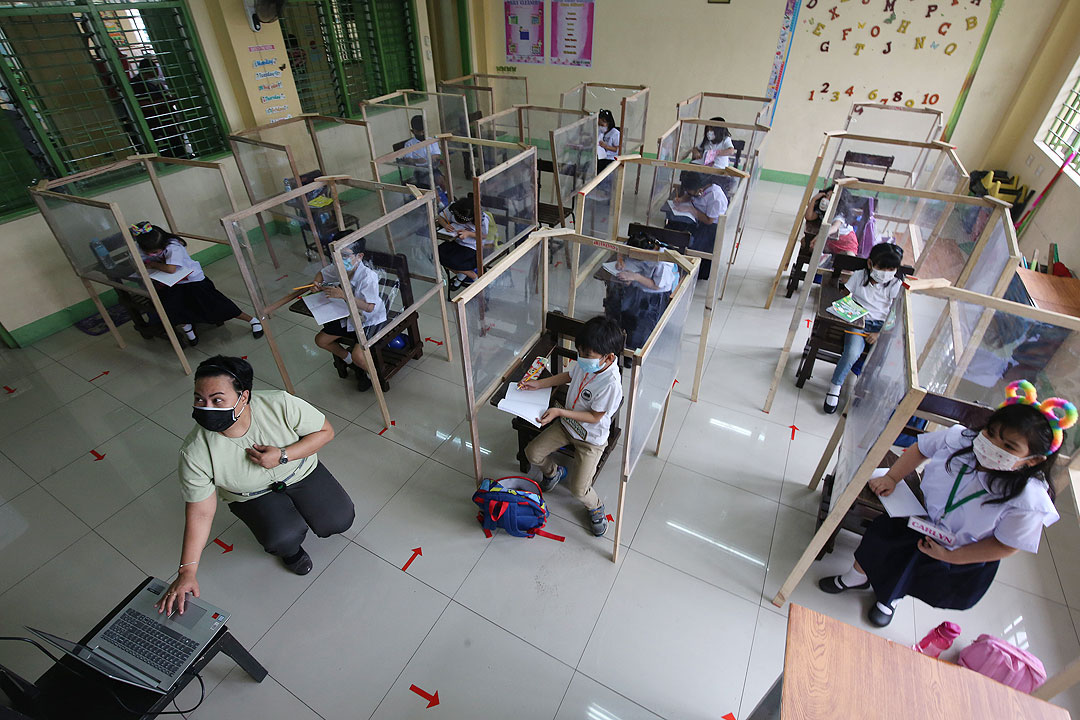FINANCE Secretary Carlos G. Dominguez III said reduced school holidays could help students make up for the shortcomings of pandemic-era schooling, such as the absence of face-to-face lessons.
At a briefing in December, he said the drastic reduction in in-person school hours will have long-term effects because it reduces the earnings potential of future graduates.
“That is economic scarring, I think, that will potentially hit us in the future,” he said.
“I’m not an education expert, so I really don’t know, but we do have to catch up for those lost two years.”
Schools stopped running face-to-face classes in 2020 to deal with lockdowns designed to curb the spread of the coronavirus disease 2019 (COVID-19).
Socioeconomic Planning Secretary Karl Kendrick T. Chua has said that the unavailability of face-to-face schooling could cost the country P11 trillion in lost wages over the next four decades.
The Philippines was the last country to return to in-person classes, which are being piloted by a handful of schools. The Department of Education plans an expanded reopening this year.
Moody’s Investors Service in July 2021 said that the Philippines could face deep economic scarring over the long-lasting effects of the pandemic.
This scarring, it said, may manifest in the labor market and poverty levels.
In response, Mr. Dominguez said the economy is headed to a “strong and early recovery.”
“Improvements in our macroeconomic indicators were driven by government policies that further reopened the economy safely, including more targeted and granular lockdowns, accelerated vaccination drives and more mobility for vaccinated individuals.
The government recently raised its gross domestic product projection for 2021 to 5.5% after the economy grew 7.1% third quarter last year after lockdowns declared to curb a Delta-driven surge in cases.
Economic managers retained the 7-9% growth target for 2022.
The government announced that Metro Manila will return on Monday to Alert Level 3, a stricter form of lockdown, to curb a recent spike in COVID-19 cases.
The economy declined by a revised 9.6% in 2020. — Jenina P. Ibañez
